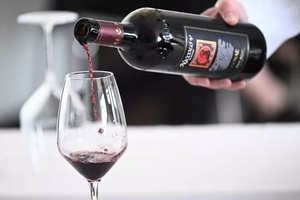According to a projection after around 80 per cent of the vote had been counted, Christian Solinas, the candidate from the rightwing coalition, had won around 48 per cent in Sunday’s election for regional governor, ahead of the centre-left on 33 per cent.
The centre-left candidate on the island, Massimo Zedda, conceded defeat once the majority of votes had been counted.
The local election indicated the M5S has lost more than two-thirds of its support on the southern island.
Francesco Desogus of the populist movement – which won 42.5 per cent of the vote in Sardinia in the national election a year ago – won just 11 per cent in Sardinia.
The movement has never won power in any of the country’s 20 regions and traditionally performs much better in national ballots.
The victorious Solinas is a senator from the far-right League, which rules at a national level with the M5S.
The League always runs in regional elections as part of an alliance with rightist and centre-right parties.
Sardinia is the sixth region or province to pass from the centre-left to the right since the Democratic Party (PD) was ousted from power at a national election last March.
“After Friuli, Molise, Trento, Bolzano and Abruzzo, Italians have chosen to let the League govern,” League leader Matteo Salvini said as the vote count for Sardinia neared.
“It’s 6-0 for the League against the Democratic Party.”
Salvini, M5S leader Luigi Di Maio, and Prime Minister Giuseppe Conte on Monday ruled out any repercussions on the national government.
“We must not over-emphasise a regional election,” Conte told reporters.
“I don’t believe the results could have any consequences for the national government.”
Attempting some sort of damage control, Di Maio said he will soon reveal reforms within the movement, including possibly allowing electoral alliances, a move he has always strongly opposed.
Local elections are generally won by broad coalitions including numerous so-called “civic lists” which represent local interest groups.
In Sardinia, there were so many of these that no single party won more than 13 per cent of the vote.
The Sardinian election went ahead as normal, despite threats from local farmers who have been protesting milk prices in recent weeks.
Current sheep milk prices have dropped to €0.60 per litre, compared to €0.85 last year.
Sardinian dairy farmers are demanding that milk prices be raised to a minimum of €0.70 per litre, arguing prices are so low they are no longer able to make a living.




























